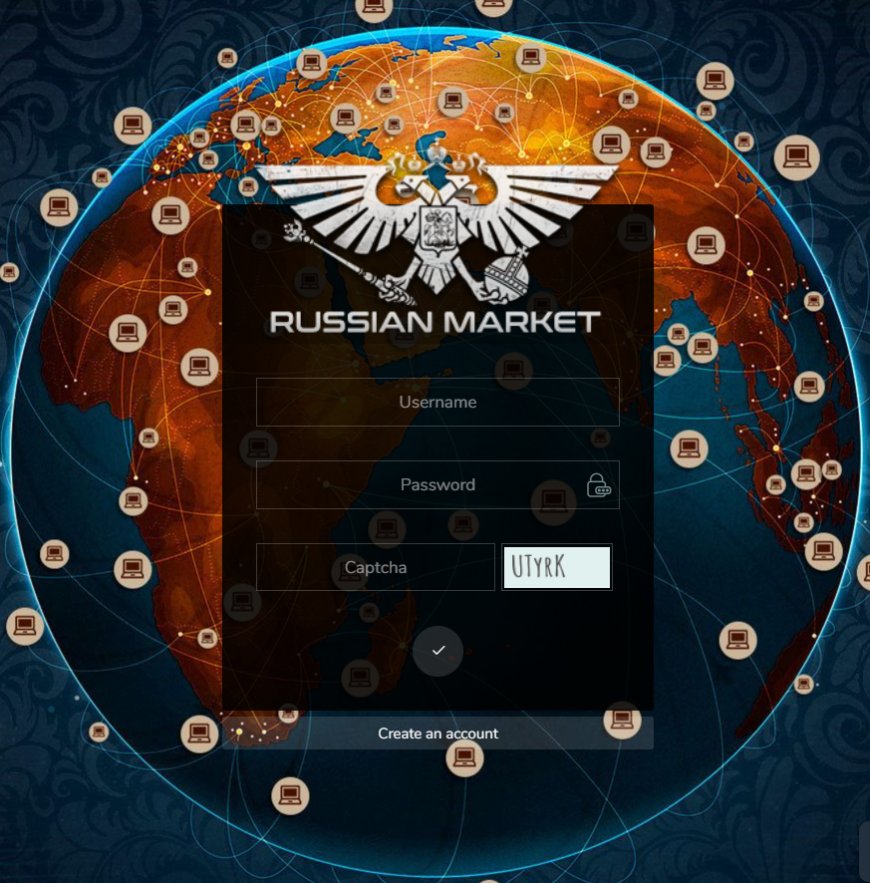Exploring the Russian Market: Understanding Dumps, RDP Access, and CVV2 Shops
Exploring the Russian Market: Understanding Dumps, RDP Access, and CVV2 Shops

The digital world is a rapidly evolving landscape, with new online marketplaces emerging regularly. Some of these marketplaces cater to the darker side of the internet, offering services and products that fall into the realm of cybercrime. One such marketplace is the Russian Market, also known as Russianmarket, which is infamous for selling stolen data, remote desktop access (RDP), and CVV2 information. This post delves into the details of these key offerings and explains their significance in the world of cybercrime.
What is the Russian Market?
The Russian Market is an online marketplace that primarily operates on the dark web. It serves as a platform for cybercriminals to buy and sell stolen information and illicit access to various systems. The market offers a wide array of products, including dumps, RDP access, and CVV2 shops, making it a go-to destination for hackers and fraudsters looking to exploit compromised data.
The anonymity provided by these platforms allows sellers and buyers to interact without revealing their identities, making it difficult for law enforcement to track down these malicious actors. The Russianmarket has gained popularity due to its variety of offerings, ease of use, and reputation within the cybercriminal community.
Key Offerings: Dumps, RDP Access, and CVV2 Shops
1. Dumps
In cyber terminology, “dumps” refer to the data extracted from the magnetic stripe of a credit or debit card. This information usually includes the cardholder’s name, card number, expiration date, and sometimes even the PIN. Cybercriminals often obtain dumps by using skimming devices or hacking into payment processing systems.
Once they have the data, they list it on platforms like the Russianmarket. Buyers can then use the information to create cloned cards or make unauthorized transactions. These dumps are often categorized based on the card’s type, issuing bank, and the country of origin, with higher-quality dumps fetching a higher price.
2. RDP Access
Remote Desktop Protocol (RDP) is a legitimate tool that allows users to remotely access a computer’s desktop environment over a network connection. While RDP is typically used for IT support and remote work, it is also exploited by cybercriminals to gain unauthorized access to computers and servers.
On platforms like the Russianmarket, RDP access is sold to those looking to control compromised systems. This access can be used for a variety of malicious purposes, such as deploying malware, stealing sensitive data, or using the machine as a proxy to carry out further attacks. The listings are usually organized based on the location, type, and operating system of the compromised systems.
3. CVV2 Shops
The CVV2 code is the three-digit number on the back of a credit or debit card, used to verify online transactions. A CVV2 shop is an online marketplace where cybercriminals sell stolen credit card information, including the card number, expiration date, and CVV2 code. With this data, criminals can make fraudulent purchases or sell the information to other bad actors.
The Russianmarket has dedicated sections for CVV2 information, making it easier for buyers to find specific card data that suits their needs. Like dumps, CVV2 listings are often organized by card type, country, and the bank that issued the card.
Why Are These Offerings So Dangerous?
The availability of dumps, RDP access, and CVV2 information on platforms like the Russianmarket poses a significant threat to individuals and businesses alike. Here’s why these offerings are so dangerous:
-
Financial Loss: Stolen credit card information can lead to unauthorized purchases, resulting in financial loss for the cardholder. While cardholders are often protected by their bank’s fraud policies, the inconvenience and stress caused by fraudulent activity can be significant.
-
Identity Theft: When cybercriminals gain access to personal information, they can use it to impersonate the victim, open new credit accounts, or commit other types of identity fraud.
-
Business Risks: Compromised RDP access can result in data breaches, ransomware attacks, and other malicious activities that can severely disrupt business operations. This can lead to financial losses, reputational damage, and legal liabilities.
-
Increased Cybercrime: The availability of these illegal offerings fuels the growth of cybercrime, making it easier for new criminals to enter the scene and for experienced ones to expand their operations.
How to Protect Yourself
Given the potential dangers posed by platforms like the Russianmarket, it is crucial to take proactive measures to protect your personal information and digital assets. Here are some practical steps you can take:
-
Use Strong and Unique Passwords: Create strong passwords that are difficult to guess and use different passwords for different accounts. This makes it harder for cybercriminals to gain access to your accounts.
-
Enable Multi-Factor Authentication (MFA): Add an extra layer of security by enabling MFA on your accounts. This requires an additional step, such as entering a code sent to your phone, making it more difficult for unauthorized users to log in.
-
Monitor Your Financial Statements Regularly: Keep an eye on your bank and credit card statements for any unusual activity. If you notice any suspicious transactions, report them to your bank immediately.
-
Be Cautious of Phishing Attacks: Phishing is one of the most common methods used to steal personal information. Be cautious when clicking on links or downloading attachments from unknown sources.
-
Use Security Software: Install and regularly update security software on your devices to protect against malware and other cyber threats.
Final Thoughts
The Russian Market, or Russianmarket, is a prominent player in the world of cybercrime, offering a variety of illegal services and products such as dumps, RDP access, and CVV2 data. While engaging with such platforms is both illegal and unethical, understanding their operation helps highlight the risks and consequences of cybercrime. By staying informed and taking preventive measures, individuals and businesses can protect themselves against these threats and contribute to a safer digital environment.












